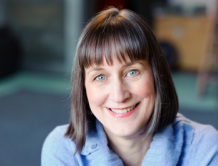 Linda Svendsen Photo by Michael O'Shea Linda Svendsen's linked collection, Marine Life, was published in Canada, the United States and Germany and her work has appeared in the Atlantic, Saturday Night, O. Henry Prize Stories, Best Canadian Stories and The Norton Anthology of Short Fiction. Marine Life was nominated for the LA Times First Book Award and released as a feature film. Svendsen’s TV writing credits include adaptations of The Diviners, At the End of the Day: The Sue Rodriguez Story, and she co-produced and co-wrote the miniseries Human Cargo, which garnered seven Gemini Awards and a George Foster Peabody Award. She received the John Simon Guggenheim Fellowship in 2006. Svendsen is a professor in the Creative Writing Program at the University of British Columbia. RUSTY TALK WITH LINDA SVENDSEN Kathryn Mockler: What is your first memory of writing creatively? Linda Svendsen: In Grade 2, we were asked to write a rhyming poem and I had so much fun doing it that I went on for a dozen stanzas. Building on this major breakthrough, in Grade 3 I tried to write a sequel to Tom Sawyer in which Becky and Tom married (roughly 6 pages of careful heartfelt printing). KM: Why did you decide to become a writer? LS: I don't think I ever decided to become a writer; it's happened by default and I still wonder how it's all going to turn out. All I know is that I really enjoy writing fiction and for screen and that it allows me to pursue all the other activities I considered such as acting, directing, producing, social work, anthropology, history, etc. KM: What is the best piece of writing advice you’ve been given that you use? LS: Nancy Packer, fiction writer (and mother of New Yorker writer George Packer and novelist Ann Packer) told me to take my characters to the cliff. And push them over. KM: Your new novel, Sussex Drive, is a political satire offering readers a behind-the-scenes look at Canadian politics. Why did you decide to take on this subject matter? What do you hope readers take away from it? LS: Sussex Drive was inspired by Canada's federal prorogue-a-palooza in 2008 and 2009. It's about a Conservative Prime Minister's wife and a left-wing Governor General and what happens when they can no longer play "Follow the Leader." I was very intrigued by the Governor General's role and decision-making in December 2008—would she or wouldn't she allow the Harper government to fall and the coalition to take power? Also, as Canadians, we're immersed in the entertainment/propaganda of the U.S. and U.K. (and their political figures with The King's Speech, The Queen, Game Change) and our own turf seemed rich and virtually unexplored. And it's chick lit, too, for canuckleheads. KM: Sussex Drive reads like it’s written by a political insider. How did you approach the research for this project? Can you tell us about the process of writing this book? LS: Sussex started out as a short story after December 2008 and headed toward novella length. After the 2009 prorogation, it became a novel and I visited Ottawa—the Parliament Buildings, Rideau Hall, Gatineau Lake, Museum of Civilization, the War Museum, and Rockcliffe Park. I happened to be in London in April 2009 during the G-20 and found it fascinating that the Canadians seemed to be invisible to the British press. Random House Canada bought the novel in October 2011 when I had 140 pages written; I wrote from January to June 2012 (my editors were amazing!) and it was published last October. Tight deadline! KM: Many reviewers have commented on the sharp dialogue in Sussex Drive. In addition to writing fiction, you’re also an awarding-winning screenwriter. Do you plan on adapting Sussex Drive for film or television? If so, how do you plan on approaching the adaptation? LS: I'm trying to talk my husband into producing Sussex Drive, but he's busy with other projects right now. 6 x 1 hour or a TV movie...fingers crossed! KM: What are you working on now? LS: Right now I'm deciding what novel I'm writing next. Great space to be in. 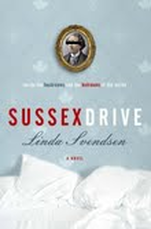 LINDA SVENDSEN'S MOST RECENT NOVEL Sussex Drive, Random House Canada, 2012 DESCRIPTION FROM THE PUBLISHER A startingly funny and deeply satisfying satirical novel that makes the Canadian political scene accessible from the female perspective, behind the scenes at the top of the hill. Torn from the headlines, Sussex Drive is a rollicking, cheeky, alternate history of big-ticket political items in Canada told from the perspectives of Becky Leggatt (the sublimely capable and manipulative wife of a hard-right Conservative prime minister) and just a wink away at Rideau Hall, Lise Lavoie (the wildly exotic and unlikely immigrant Governor General)—two wives and mothers living their private lives in public.Set in recent history, when the biggest House on their turf is shuttered not once, not twice, but three times, Becky and Lise engage in a fight to the death in a battle that involves Canada’s relationship to the United States, Afghanistan and Africa. The rest of the time, the women are driving their kids. From Linda Svendsen’s sharp and wicked imagination comes a distaff Ottawa like no other ever created by a Canadian writer, of women manoeuvring in a political world gone more than a little mad, hosting world leaders, dealing with the challenges of minority government, and worrying about teen pregnancies and their own marriages. As they juggle these competing interests, Becky and Lise are forced to question what they thought were their politics, and make difficult choices about their families and their futures—federal and otherwise. EXCERPT FROM SUSSEX DRIVE  Iain MacLeod Iain MacLeod is a film and TV writer from Nova Scotia. Educated at York University and the Canadian Film Centre, where he was captain of the soccer team, Iain’s first TV gig was writing sketch on CBC’s Street Cents. Later he spent six seasons on Showcase’s Trailer Park Boys as story editor and the last four of those as one of the writers too. Since then he has consulted on various shows in development, done some teaching and mentoring and also spent a lot of time thinking about joining the Navy. Most recently his co-written feature comedy Beat Down was produced and will be released in theatres this fall. RUSTY TALK WITH IAIN MACLEOD Kathryn Mockler: What is your first memory of writing creatively? Iain MacLeod: I grew up in rural Nova Scotia, and I can remember playing in the woods a lot and pretending to be a soldier in WW2. I’d make up characters and little story lines. In terms of actual writing-it-down-writing though, I guess that would be writing stories in elementary school. A teacher said to me once I could be a writer. Foolishly I listened to her. KM: When did you first start writing for film/TV? IM: As far back as grade twelve I’d fooled around with video but nothing serious. Then when I finished university I somehow convinced my Mum to loan me a lot of money to make a 48-minute film. That was in 1996 and afterwards I made a few more shorts before getting a job at CBC’s Street Cents in 1999. KM: What inspires the stories you tell? IM: I think it’s a combination of my neurotic brain and the weird area I grew up, New Glasgow, Nova Scotia, which is literally the worst town in Canada (seriously there’s a list and it’s finished last, two years in a row…don’t get too cocky though Toronto you were 47 this year). There’s always something strange going on there and I just love that. So my inspiration is crazy people, myself included? Does that make me bad? It might. I just love people and the nonsense they get up to. Worst species ever…but I love us. KM: Was there a writer or filmmaker that had a big impact on you? IM: All kinds really though I’m not quite sure how each person did. My favourite writer for example is Jane Austen (who is the greatest writer in the history of the English-language and I will fist-fight anybody who disagrees) but I don’t think anyone would see her influence in my writing. Should I just say Quentin Tarantino? KM: What is the writing process like for you when working on your own projects? IM: I love to write but I also hate it…a lot. It isn’t always that much fun and (I hope) like a lot of writers I avoid it as much as possible. If I’m writing a script there’s usually a long drawn out period of making notes, thinking about structure, and so on. Then there’s an outline and that should be followed by a treatment but often isn’t. Finally, I write the script and that can actually happen fairly quickly if I get on a roll. I find a lot of the process is about waiting, staring at the ceiling, searching Wikipedia etc. Not fun. KM: How do you approach revision? IM: With terror. To be fair sometimes it’s not that bad and can even be fun, but I also often feel like “that’s it, I’m done, it’s perfect” when I finish a first draft. And by often I mean always. You have to revise though. I guess? KM: What was the co-writing process like on your feature film Beat Down? IM: My co-writer, Deanne Foley, and I have a very similar sensibility (I don’t know if we’re really funny or not but we find each other hilarious) so for the most part the writing went smoothly. It can be a bit complicated to distribute scenes, acts etc. fairly between two people, but there was a lot of talking things through and knowing where we were going first. It ended up taking 2-3 years in the end, and I think that was both a good thing and a bad thing. On the whole though, it was a great experience. I’ve done co-writing where it’s been wonderful and where it’s been an absolute unbearable hell. Writing Beat Down was the former. KM: What is the biggest difference between writing for film and writing for TV? IM: Other than the paycheque you mean? I guess it’s that a movie ends but you have to keep coming up with new stories for a TV show. That sounds obvious but it is a really hard thing to do (watch The Beachcombers Season 15 for example). Not all show concepts can sustain that. When I pitch TV series I often hear “that’s a movie” so I guess I haven’t really mastered it myself. Another thing is that, at least in Canada, there are far more people weighing in with notes for TV than with film and not always in a good way. KM: When getting notes from producers or story editors, what do you do when you get a note that you don’t like or agree with on your script? IM: I smile and think they’re idiots. That’s actually true. But then if the note’s any good or I respect the person giving it I do seriously consider it, which is something I never used to do when I was younger. Maybe I’m growing up. Ultimately, if you’re getting paid and these are the people who will, hopefully, get your thing made you have to listen. It’s a balancing act though, fighting for your vision on the one hand and hearing different views on the other. It takes a long time to figure that out and given the nature of this business I don’t know that anyone ever does completely. As a general rule though, if you’re getting the same note from different people they’re probably right. Idiots! KM: Do you have any advice for someone aspiring to write for television? What is the best way to break in? IM: I don’t have children but whenever I’m asked this question I feel like that’s what it would be like if I did and they asked me about Santa Claus. I genuinely want to be encouraging, but at the same time the simple truth, which is rarely stated unfortunately, is that writing for TV is highly, even brutally, competitive. And not only is it competitive, but also there isn’t a prescribed path to take to break in. It’s not like being a doctor or a welder or a taxi driver or whatever, where as long as you do certain things it will happen. TV is just so unpredictable. One of the things that’s hurt me (and it is possible I just suck too) is it took me a long time to get my head around that. I was trying to apply my small-town Presbyterian worldview to the industry and it wasn’t adding up. Anyway by all means immerse yourself in TV, try to write a brilliant spec script, talk to as many people as you can who are already in the business and so on but my biggest piece of advice is simply, understand just how unpredictable and ridiculous this business is. It’s probably going to be hard no matter what, but if you don’t have that perspective I’m talking about, it will be much harder. And you’ll probably go completely insane (that isn’t a joke). Of course everything I just said only applies to people who aren’t scumbags. For those of you who are, my advice is much simpler, just keep doing what you’re doing. You’ll go far. I’m totally serious by the way—they have a much better shot. Lucky bastards. KM: What is your favourite moment that you’ve experienced as a writer or filmmaker? IM: I was in a bar in my hometown once talking with some people a buddy of mine knew. They asked me what I did and I told them and one of them quoted his favourite Trailer Park Boys line, a line I’d written. So that’s probably the best moment. Not quite saving the world but I’ll take it. KM: What are you working on now? IM: I have a couple features in development. One of my own, called Soccer Punch, and another with co-writer Ed McNamara, Brobots. I have a few more in pre-development (which is code for I’m not getting paid), and I have some TV pitches I’m working on too. I’m also fooling around with a novel fragment that I wrote when I was in my mid-20s and finally decided to work on again. It’s called Leftovers and is about my hometown (I’m also toying with calling it The Worst Town In Canada). IAIN MACLEOD'S MOST RECENT FILM
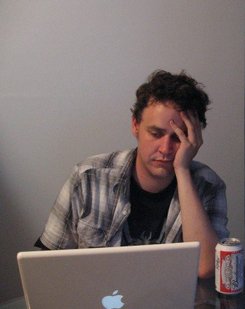 Bob Kerr Bob KerrPhoto by Craig Brown Comedian, actor, and writer, Bob Kerr is currently a writer on CBC's award-winning This Hour Has 22 Minutes which earned him a Gemini nomination. He was a founding member of the 12-man sketch troupe The Sketchersons which earned three consecutive nominations for the Canadian Comedy Award. He has written for Cream of Comedy (Comedy Network), a segment for CBC Newsworld Live (CBC), Comedy Inc. (CTV), Nikki Payne's Funtime Show! (Comedy Network Special), and Hotbox (Comedy Network). Bob also co-wrote and performed in the short film, The Funeral, which screened at the Sundance Film Festival and CFC Worldwide Short Film Festival in 2008. In 2011, Bob participated in the CFC/Telefilm Comedy Lab for a horror-comedy feature film script that he co-wrote entitled The House They Screamed In. You can follow Bob on Twitter. RUSTY TALK WITH BOB KERR Kathryn Mockler: What is your first memory of writing creatively? Bob Kerr: As a fan of Letterman, I would write my own Top Ten Lists and read them to my fellow kids at the back of the bus. I also wrote stories that were a direct inspiration of movies I was into. I wrote a story that was about a baseball team that was trapped within a (Jurassic Park-type) jungle and the star pitcher was bitten by a "gypsy hamster" that turned him into a (Pet Sematary 2-style) zombie. Really dumb. KM: When did you first start writing for film/TV and how did you get into it? BK: I was a member of a comedy troupe called The Sketchersons, and we did a weekly show called Sunday Night Live which heavily borrowed from the format of Saturday Night Live. I had done the Weekend Update part of the show for a large part of the time. Producers who saw the show asked me to submit things. My first writing gig was a for a late-night talk show pilot that didn't go anywhere and that was followed by my first trial run at This Hour Has 22 Minutes. KM: Was there a writer or filmmaker that had a big impact on you? BK: It was mainly performers, actually. David Letterman and Conan O'Brien were big influences. They do what they want to do. And a lot of it's really weird, and I like weird things. KM: How does the writing room work for This Hour Has 22 Minutes? BK: Early in the week, we pitch sketches and spend the whole day and night writing them. After the table read, sketches are picked and then the following days are focused more on copy jokes (a.k.a. news jokes...y'know, the set-up-punch stuff) and things called ledes, which is writing jokes around actual news footage. We sometimes pair up on sketches, but there's a lot of independent writing. My favourite days are writing copy jokes because we have table reads of those jokes amongst the writers and we have a couple laughs. Sometimes even more. KM: For someone looking to get into TV or comedy writing, a writing room—especially a comedy room—can seem intimidating. Do you have any advice for how to get over feeling like an idiot if your joke fails or no one likes your ideas in the room? BK: Trust me, I know what it's like to feel like an idiot. I've had plenty of stuff bomb in the room. An important thing to remember is that you're in good company; everybody bombs. Bombing is a very key part of the writing process. Because you learn from it. Mainly what works and what doesn't. So ultimately, don't dwell on feeling like an idiot. Because you will miss the bomb lesson. It's not about you! Get over yourself! Move on! (I feel like I'm talking to myself now.) KM: What is your writing process like for your other projects—other collaborations or solo projects? BK: Typical; go to coffee shop, order an Americano and stare at my computer screen. Collaborations can be fun if you're doing it with the right person. Someone that you feel comfortable bouncing ideas with. KM: What is the biggest difference between writing for film and writing for TV? BK: You spend way more time with a film script than a TV script. There's pros and cons to both. With TV, you don't have all the time in the world to make "the perfect script", so there's not much time for rewrites. You are also forced to write a lot and quickly and that kind of pressure is good. I think you get better stuff from that. Plus, there's a whole writing room that will punch up your ho-hum material. Again, it's not about you. KM: When getting notes from producers/story editors/show runners—what do you do when you get a note that you don't like or don't agree with on your script? BK: Well, there's two ways to go about it. You either don't make the change and pray they don't notice (which they usually do), or you talk it out with said note-giver. That being said, pick your battles. One thing I've learned in TV is that I can't be too precious with anything I write. With 22, there's not a lot of time, because I'm most likely onto something else. Plus, it's hard to feel precious about something I've worked on for a couple of hours the night before as opposed to something I've been working on for weeks or months. KM: Do you have any advice for someone aspiring to write for television? What is the best way to break in? BK: I don't know what the best way is. I only know my way. I was tenacious and I wrote a lot of stuff. I was out there performing with a great troupe every week on top of doing stand-up and I was getting myself seen. It's a lot of work to get a job. There's also the standard advice: Write spec scripts, get an agent, write more spec scripts. KM: What are you working on now? BK: I'm going to be returning to Halifax for the 20th season of This Hour Has 22 Minutes. I'm currently working on a spec pilot as well. I'm also trying to think of a funny tweet.
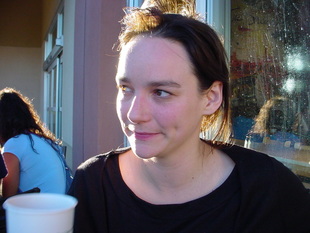 Semi Chellas Photo by Kate Ware Semi Chellas is a writer and supervising producer on the sixth season of TV’s Mad Men. She is nominated for two Emmys (with Matt Weiner) for her episodes in season five, “Far Away Places” and “The Other Woman”. She is also adapting Dr. Jill Bolte Talyor's best-selling My Stroke of Insight for Imagine Entertainment. Semi was the Executive Producer and Co-Creator of Canadian prime-time network drama THE ELEVENTH HOUR, two-time Canadian Academy of Cinema and Television winner for Best Series. The show ran three seasons and was nominated for 38 awards by the Canadian Academy, winning 9; Semi herself won for Best Writing (with Tassie Cameron). As a director, she's had three short films premiere at The Toronto International Film Festival: Green Door (written by Barbara Gowdy); Trouser Accidents (included in the Best Canadian Short Films Showcase) and Three Stories From the End of Everything (nominated by the Canadian Academy for best live-action short). RUSTY TALK WITH SEMI CHELLAS Kathryn Mockler: What is your first memory of writing creatively? Semi Chellas: I wanted to be a writer as soon as I knew what that was. My mom was a freelance journalist and she had set up a little desk for me next to her desk. I must have been five or younger, and I had her taking dictation for this book I was working on that involved a lot of puns. When I was 7, I wrote a novel in twenty 3 by 5 spiral notebooks—it was the story of a girl with a tail who lived in a country where people with tails were enslaved. And basically she was trying to get Han Solo to smuggle her out of there. I submitted a story to The New Yorker when I was 16 and got a hand-written rejection. Later I think it became a liability for me. I had to get rid of the romantic ideas I had about being a writer and actually learn to write. The best advice I ever heard about writing was “get dressed every day”. KM: Why did you become a writer? SC: It’s a bit of a cliché I think, but there is no why. I just always wrote. KM: Was there a writer or filmmaker or screenwriter that had a big impact on you and your writing? SC: When I was a kid, in the ‘70s, my grandfather and his wife lived next door to Ann Beattie in Connecticut. I just read that during that decade she had 35 stories in The New Yorker. She was an original and had invented a whole new style. Plus she was tall and funny and had long swingy hair and I loved her. My grandfather, to my mortification, told her I was writing stories. And she asked to read one of mine, and there was a dog in it. She read it very gravely and asked me questions instead of giving me false praise, or acting like it was cute that I’d written it. Then she gave me a copy of her latest collection, Distortions, and she had inscribed it to me and ticked off in pencil all the stories with dogs in them. And I felt like she was treating me like a fellow writer—that we were actually having an interaction that was beyond just me being a little kid who was in awe of her. Of course I was completely deluded. But I read every story in that collection a hundred times and tried to understand how they were so good, and that was an enormous influence on my writing. KM: What is writing process like for you when you write alone? How do you approach revision? SC: I like to have big chunks of time when I write but that always used to lead to a lot of procrastinating, because I’d think, Well, it’s almost noon and I haven’t written anything so what’s the point of starting? Then I was at a dinner party with a famous fiction writer who was talking about how her daughter, a graduate student, had finished her dissertation after reading a book called How To Finish Your Dissertation. And this book was written by a brain specialist whose whole thing was that creativity comes in 90-minute bursts. After that, the brain needs to rest for 30 minutes. And two or three of these bursts was a good day’s work for a creative person; if you’re spending eight hours at the computer in the day, it’s really only two hour and a half periods that count. This changed my life. I started working in 90 minute windows, where I would completely block everything out—no phone, no text, no Googling or internet, no changing the music. And I started doing this with friends—we’d go somewhere and sit across from each other and work for 90 minutes and then take a break for a half an hour. And it’s incredibly effective. Then one of my friends asked about this book and we went looking for it and I swear it doesn’t exist. I don’t know if the writer made it up, or her daughter made it up, or something, but there is no truth to that 90-minute theory. But I guess it imposed discipline on me that I needed. I still do it. KM: Could you describe the journey from your first TV writing job to writing for Mad Men? SC: A long time ago, I wrote a movie that ended up getting made for television. And it won a lot of awards, so even though I’d never written for television before that, I was approached to develop an idea for a series. So with a producer friend Ilana Frank, I created the show that became The Eleventh Hour, and it got ordered, and then suddenly Ilana and I were running this TV series. And neither of us had done episodic TV at all. It was really like getting thrown in the deep end and learning to dogpaddle to the side—over and over and over every week. The series turned out great, and I’m very proud of it. After that I didn’t want to work on a TV show for a long time. But I always said to my agent that if there was ever an opening on Mad Men, he had to get me the meeting. And then there was, and he did. KM: How does the writing room work on Mad Men? How does this differ from the other shows you’ve worked on? SC: Matt Weiner, the creator and showrunner of Mad Men, comes in at the beginning with a vision for the season. He lays out themes, character arcs and the time period. He’ll give us books to read, he’ll read us poems or passages, he’ll show us images. Then we work together as a room on every story—you don’t know if it will be your script until the outline is finished, and it’s an incredibly detailed document. The people in the room are amazing—people who’ve run shows, comedy and drama writers, advertising people from then and now. Writers in their 20s who worked up from being Matt’s assistant. Last season, a writer in his 80s—the late great Frank Pierson, who wrote, among other masterpieces, Dog Day Afternoon. KM: Writing for TV is a collaborative effort. What is the best way to deal with conflicts when writing with others? SC: Be professional. Don’t make it about you. Be clear about the chain of command. There are always going to be differences of opinion, but there shouldn’t be conflicts. KM: When getting notes from producers/editors/showrunners—what do you do when you get a note that you don’t like or agree with? SC: Look at what the note is addressing. The solution being offered may be wrong. But the problem it’s identifying may exist nonetheless. KM: What is the best piece of writing advice you’ve been given that you use? Besides “get dressed every day”? The best piece of writing advice I ever got was from an editor, who said when a scene’s not working, the problem is usually actually in the scene right before it. KM: What are you reading right now? The book by my bed is The Collected Stories of Peter Taylor. I read somewhere that Ann Beattie admired him, and I’d never read him. And I like to read publications from the year we’re working in on Mad Men--Time, Life, Newsweek, The New Yorker, the Times, Playboy, Harpers. I read the same magazines I would now but from dates back then. Clips from Semi Chellas and Matthew Weiner's Emmy-nominated Mad Men Episodes: 506 (Far Away Places) and 511 (The Other Woman)
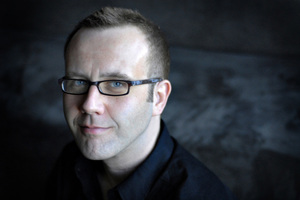 Rob Sheridan Photo by Camilla Pucholt Rob Sheridan is an LA-based Canadian writer with extensive credits on both sides of the border. Repped by WME Entertainment in Los Angeles and managed by Meridian Artists in Toronto, Rob’s recent LA writing credits include Mad Love (CBS) (Co-Executive Producer) starring Jason Biggs and Sarah Chalke, and the forthcoming Next Caller (NBC) (Co-EP) starring Dane Cook, and Jeffrey Tambor. This past year Rob also developed two projects for ABC Network with both ABC Studios and Warner Brothers television, including an adaptation of the book Home Game by bestselling author Michael Lewis (Moneyball, The Blind Side). Prior to moving to LA, Rob worked on several top-rated Canadian series including Corner Gas (CTV/Comedy Network), Little Mosque on the Prairie (Co-Executive Producer) (CBC), Less Than Kind (Consulting Producer) (HBO Canada), 18 To Life (CBC) (Co-Producer) Producing Parker (Teletoon), Crash Canyon (Teletoon), Naked Josh (Showcase Television) and The Red Green Show (CBC). RUSTY TALK WITH ROB SHERIDAN Kathryn Mockler: How did you first get into TV writing? Rob Sheridan: I was doing some copywriting and working as a publicist, and generally hating it. But I had written a couple of sitcom spec scripts and submitted them to the television writing program at the Canadian Film Centre. I got into the program, and after that things started happening pretty quickly. Steve Smith hired me to write a few scripts for The Red Green Show, and hired me on staff the following year. I was already 30 by the time I went to the CFC, so when I hear a 24-year-old tell me they feel too old to break in to television, I always slap them. Not really. But I think about it. KM: What is the writing process like for you when you write alone and/or as part of a writing team? RS: On any sitcom you spend a lot of time in "the room" with a bunch of other writers, generating story ideas, working out the beats, and later doing punch up. It's great fun, very social, and a lot of great material comes out of that. But somewhere in between the writer goes off on his or her own and writes a first, and hopefully a second, draft. Some people hate that part, but I enjoy it. I can discover new things, and jokes and ideas occur to me when I'm alone that don't always come to me in the room. There are some shows that eliminate that step—scripts are "room-written" with everyone working on a draft at the same time with the script projected on a screen. It's not my favorite way of doing things. I think every writer deserves a chance to put his or her personal imprint on a script, if only so the other writers then have a chance to throw it out and re-write it anyway. KM: How do you approach revision? RS: The most annoying expression to any writer is "writing is re-writing" because we all want to think we nail it on the first draft, but of course we don't Especially not in TV. A lot of the revising is done, as I mentioned before, in the room. It's not for people with big egos. Stuff gets thrown out, changed, re-written. You have to enjoy that process and trust that it's making it better. Sometimes you lose something you loved but the gains generally outweigh the losses. You can always use your hilarious penis joke another time. KM: What is the role of the showrunner? RS: The showrunner is involved in every step of the process. In addition to the writing they have input on casting, costumes, sets, props, editing, the whole thing. And they're often on the floor working with the actors. It's different than features because in TV the showrunner really is boss as opposed to the director. Unfortunately, in my experience, Canada has never really properly embraced the showrunner model, at least in comedy. It's too much creative power in one person's hands. Some of the Canadian creative execs I've worked with fear and hate that. So the showrunner often becomes more of a glorified head writer. It's incredibly frustrating, and one of the major reasons I came down to the U.S. KM: When should emerging writers approach agents? RS: When they're absolutely certain their sample material is as good as it can be, and never before. You only get that one shot. It's a cliché, but you really do have to give that script to five or ten people that you trust (and maybe a couple that you don't) and take as much input as possible. You don't have to listen to everyone's advice, but if ten people all tell you your third act is rubbish and the lead character is boring, it means that your third act is rubbish and your lead character is boring. Also, for the love of God, watch the spelling and grammar. If I see someone write "your" when they mean "you're" on page one, I'm out. KM: What are you working on now? RS: I'm off to New York City this summer to work on a show called Next Caller for NBC. It's somewhat unusual for a sitcom to shoot in New York, though 30 Rock does it and it doesn't seem to have hurt them. The show was created by a writer named Stephen Falk who has written for Weeds for many years. His background in cable is evident in the pilot. It's very smart and funny and subtle where it needs to be...basically a battle of the sexes with two hosts working on a show at a satellite radio station. And it's a very strong cast. Dane Cook, Collette Wolfe, and Jeffrey Tambor, whom I love. I'm really looking forward to it, though I know I'll also be glad to get back to LA at the end of the year. I'm a convert to the constant sunshine. Kurt Vonnegut was right: California really does make you soft. ROB SHERIDAN'S MOST RECENT TV PROJECT Next Caller, NBC, 2012 Description from NBC What happens when a foulmouthed satellite radio DJ--played by the multi-platinum selling artist and outrageously charming Dane Cook--is forced to share the mic with a chipper NPR feminist? It's anyone's call in this sharp new comedy from producer Stephen Falk (Weeds) and Emmy-winning director Marc Buckland (Grimm, My Name Is Earl). It's her first day in New York City, and 26-year-old Stella Hoobler is ready to take on the world. After a stint on public radio, she's been hired to co-host the no-holds-barred show Booty Calls with Cam Dunne. Smart, spunky and passionate, Stella is determined to elevate the show beyond its boys'-club-locker-room humor into a respected debate about men, women and the state of human relationships. But there's a problem: Cam! She's going to find out the hard way that he's got no intention of sharing the spotlight, especially with someone like her. It's going to be a tense fight, but with the station's one rule being "make some noise," Cam and Stella could be a winning combination - as long as they don't knock each other out on their way to success. Next Caller: Clips |
Rusty Talk
Rusty Talk Editor: Archives
November 2017
Categories
All
|

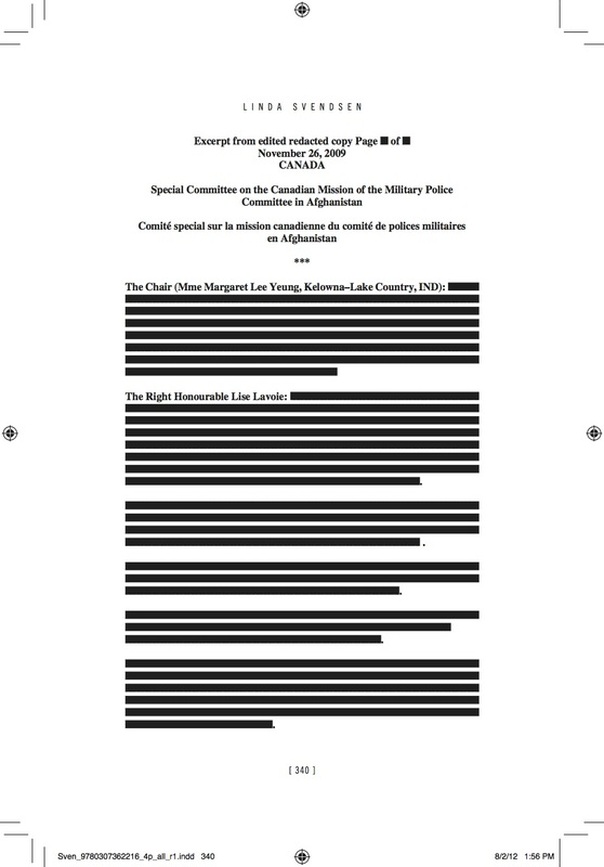
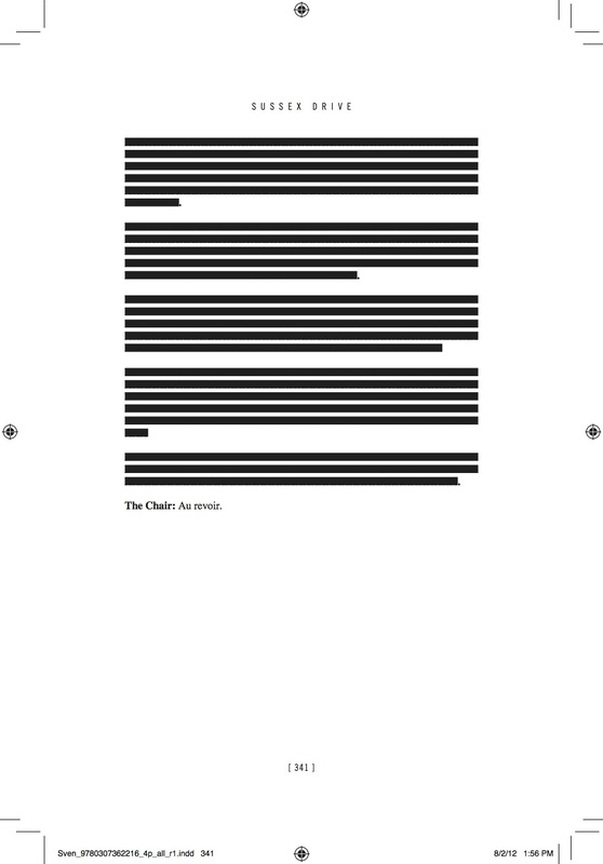
 RSS Feed
RSS Feed
